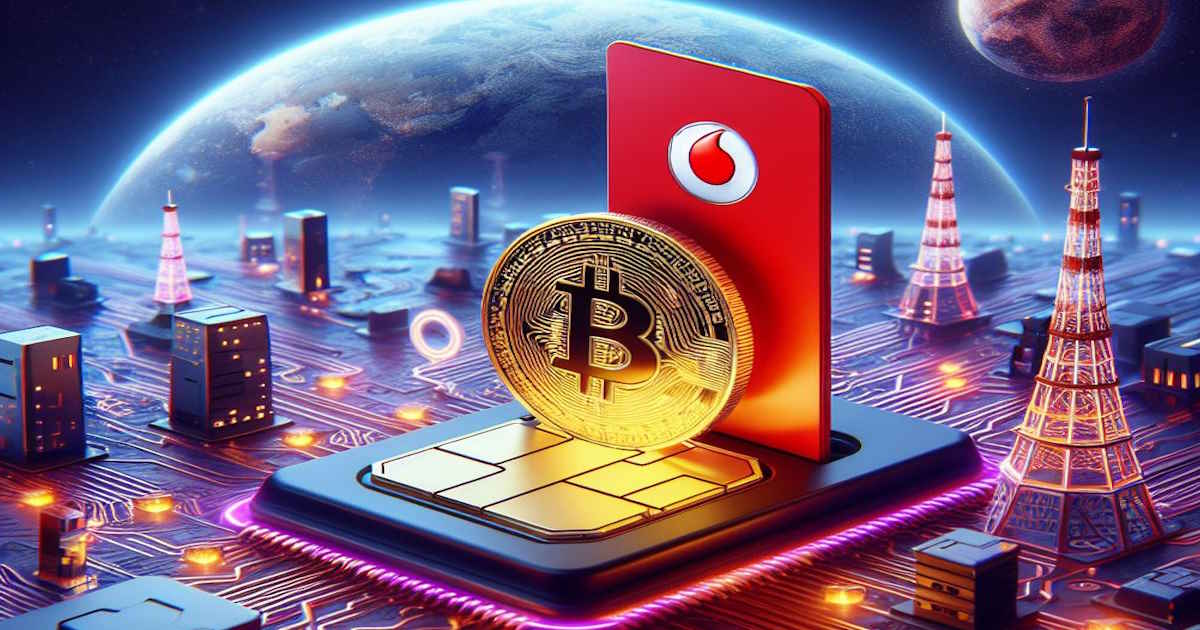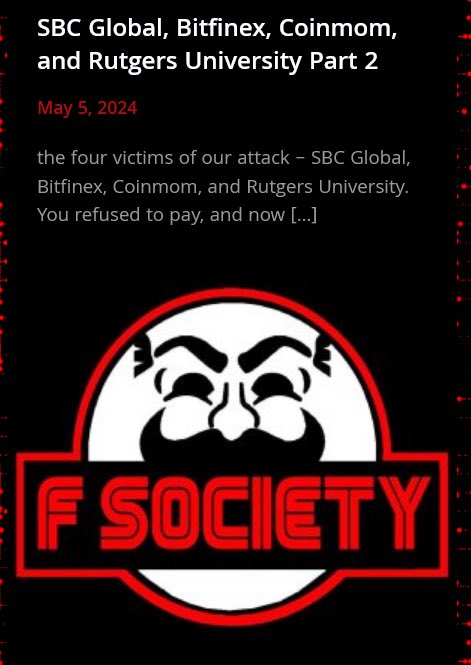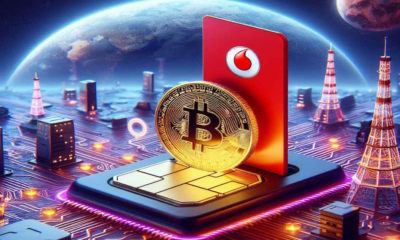Bitcoin
New Regulations For Cryptomining in Iran

The Energy Ministry of Iran has mandated that owners of cryptomining equipment must register their personal information and device location in the Comprehensive Trade System of the Ministry of Industries, Mining and Trade.
This move is intended to prevent legally imported hardware from being used in unlicensed cryptomining facilities, according to Mohammad Khodadadi, an official with the Iran Power Generation, Transmission and Distribution Company (Tavanir).
Khodadadi stated that mining centers will be subject to random inspections to ensure transparency and validity of registered data for authorized miners. Failure to register device locations or changing them without reporting to the system will be considered a violation of rules and may lead to fines for offenders.
Cryptocurrency mining has become increasingly popular in Iran over the past few years. Despite the government’s initial skepticism about digital currencies, Iran has taken steps to regulate the industry and even embrace it as a potential source of revenue.
However, the Iranian government has taken steps to regulate the industry and prevent the use of unlicensed mining facilities. In May 2021, the Ministry of Energy announced that all cryptocurrency mining operations must be licensed and registered with the government. The Energy Ministry also required owners of cryptomining hardware to register data related to themselves as well as the location of their devices in the Comprehensive Trade System of the Ministry of Industries, Mining and Trade. Failure to do so could result in fines.
One of the major concerns with cryptocurrency mining in Iran is the amount of energy it consumes. The Iranian government heavily subsidizes energy, which has made the country an attractive destination for miners. However, the energy consumption of cryptocurrency mining has put a strain on the power grid, leading to blackouts in some areas.
Bitcoin
French Police Arrest Crypto Kidnappers After Finger Cutting

Paris, France – French police arrested several suspects this week tied to a disturbing May kidnapping. The victim was the elderly father of a wealthy cryptocurrency entrepreneur. A source close to the investigation confirmed the arrests on Wednesday.
This incident is the latest in a concerning series of crimes. Over recent months, criminals have repeatedly targeted the families of France’s crypto elite. The goal appears consistent: extortion through abduction.
The May Kidnapping: Violence in Daylight
The events prompting these arrests unfolded on May 1st. In Paris’s busy 14th arrondissement, four masked men struck in broad daylight. They seized the elderly father of a prominent crypto businessman. Witnesses saw the men force the victim into a delivery van.
The kidnappers acted brutally. They cut off one of the victim’s fingers. They demanded a ransom of several million euros (equivalent to millions of dollars) for his release.
French police responded decisively. A tactical unit located where the man was being held. Days after the kidnapping, they stormed a house in a Paris suburb. They successfully freed the victim.
Recent Arrests and a Pattern of Crime
The arrests made this Tuesday target individuals suspected of direct involvement in this violent abduction and extortion plot. The source did not specify the exact number of people arrested or their locations. Under French law, suspects can be held for questioning for up to 96 hours before charges must be filed.
This case isn’t isolated. Since January, French authorities have tracked a worrying trend. Wealthy individuals involved in cryptocurrencies, and crucially, their families, have become prime targets for kidnapping gangs.
The Balland Case: A Chilling Precedent
The spate began dramatically in January. Kidnappers abducted David Balland, co-founder of the billion-dollar crypto security firm Ledger, and his partner. The perpetrators used horrific tactics similar to the May case. They cut off Balland’s finger and demanded a large ransom.
Police found Balland the next day. His girlfriend was discovered tied up in the trunk of a car outside Paris. This case highlighted the serious threat facing the crypto community.
Significant progress was made last week. Moroccan authorities, acting on French requests, arrested Badiss Mohamed Amide Bajjou in Tangier. The 24-year-old is suspected of being the mastermind behind the Balland kidnapping and other similar attacks. At least nine other suspects are under investigation in that specific case.
“Stop the Mexicanisation”: Fear and Frustration Mount
The repeated attacks have created deep anxiety. Wealth generated through the volatile but lucrative cryptocurrency market has painted targets on the backs of entrepreneurs and their loved ones. The violence and brazen tactics recall organized crime operations seen elsewhere.
One prominent crypto entrepreneur voiced this fear starkly. He urged French authorities to “stop the Mexicanisation of France.” This phrase directly references the kidnappings often perpetrated by violent cartels in Mexico.
Government Steps: Meetings and Security Pledges
The growing crisis forced a government response. Last month, Interior Minister Bruno Retailleau held an emergency meeting. He met with leaders from the cryptocurrency sector. The Ministry of the Interior announced plans following this meeting. They pledged to bolster security measures specifically for individuals deemed high-risk within the crypto industry.
The Security Challenge for Crypto Wealth
This wave of kidnappings underscores a harsh reality. Sudden, significant wealth linked to cryptocurrencies attracts dangerous criminal attention. Unlike traditional wealth often held in regulated banks or visible assets, crypto fortunes can be harder to trace. This might make victims seem like easier targets for extortion, criminals mistakenly believing crypto ransoms are harder to track or recover.
However, the brutal methods – severing fingers to pressure families – demonstrate extreme violence. It shows these gangs operate with little regard for human life. The targeting of elderly parents adds another layer of cruelty, exploiting family bonds for financial gain.
The Investigation Continues
While this week’s arrests mark progress in the May case, the broader threat remains. Authorities are actively investigating the connections between these incidents. They are working to dismantle the networks responsible for planning and executing these kidnappings.
Key questions persist:
- Are these separate criminal groups, or part of a larger, coordinated network?
- How are victims being identified and targeted?
- What specific security enhancements will the government implement?
The French crypto community watches nervously. They hope these arrests signal a turning point. They want authorities to break the cycle of violence targeting them and their families. The pressure is on police and government officials to deliver tangible results and restore a sense of safety.
The promise of cryptocurrency innovation now comes with a grim caveat in France: immense wealth can carry immense personal risk. As investigations deepen and security measures evolve, the nation grapples with preventing its crypto boom from being overshadowed by a crime wave targeting its architects.
Bitcoin
Telecom Giant Vodafone Bringing Crypto to the Masses Via SIM Cards

The major telecom company Vodafone has unveiled an ambitious plan to integrate cryptocurrency wallets directly into the SIM cards used by mobile phones on its network. This cutting-edge move aims to make blockchain technology and crypto easily accessible to millions of smartphone users worldwide.
What’s Happening?
Vodafone, one of the largest mobile operators based in the UK, intends to combine crypto wallets with the subscriber identity module (SIM) cards inside phones. SIM cards are little chips that allow mobile devices to connect to a carrier’s network.
By embedding a crypto wallet into these ubiquitous SIM cards, Vodafone wants to introduce blockchain and virtual currency technology to the masses through the smartphones we all use daily.
The Bigger Blockchain Picture
This crypto SIM integration is part of Vodafone’s bigger blockchain strategy. The company has developed its own “PairPoint Digital Asset Broker” platform to enable secure digital identities and transactions across different blockchains.
Vodafone’s blockchain lead David Palmer emphasized in an interview that mobile phones are the main way billions access digital services and commerce. So partnering blockchain with SIM card tech is crucial for widespread adoption.
By 2023, there will be over 8 billion mobile phones in use globally. And estimates suggest crypto wallets on smartphones could reach 5.6 billion by 2030 as digital money goes mainstream.
Financial Restructuring
The crypto wallet announcement comes as Vodafone seeks to restructure its finances and raise billions in new funds through debt offerings and loans over the next couple years.
The company plans to take on $2.9 billion in total debt, including $1.8 billion in direct loans. Some of this financial overhaul relates to issues at Vodafone’s Indian subsidiary Vodafone Idea Ltd.
While navigating these monetary hurdles, Vodafone still sees major opportunities in emerging technologies like blockchain and aims to be an innovator helping drive mainstream crypto adoption through the SIM card strategy.
Bitcoin
No Evidence of Hack, Says Bitfinex CTO Amid Ransomware Gang’s Allegations

In the world of cybersecurity, claims of data breaches can cause significant concern and speculation. Recently, a ransomware group named FSOCIETY claimed to have successfully hacked several organizations, including the cryptocurrency exchange Bitfinex. However, Bitfinex’s Chief Technology Officer (CTO), Paolo Ardoino, has dismissed these rumors, stating that a thorough analysis of their systems revealed no evidence of a breach.
According to Ardoino, who is also the CEO of Tether, less than 25% of the email addresses allegedly stolen from Bitfinex’s servers match legitimate users. This casts doubt on the validity of FSOCIETY’s claims regarding the supposed hack.
The ransomware group, styled after the fictional hacking group from the TV show “Mr. Robot,” claimed to have breached several victims, including Rutgers University, consulting firm SBC Global, and a cryptocurrency exchange they referred to as “Coinmoma,” which is likely a misspelling of Coinmama.
Ardoino expressed skepticism about the group’s claims, stating that if they had indeed hacked Bitfinex, they would have demanded a ransom through the exchange’s bug bounty program, customer support channels, emails, or social media accounts. However, Bitfinex received no such requests from FSOCIETY.
Furthermore, Ardoino shared a message from a security researcher suggesting that the real motivation behind the alleged hacks might be to promote FSOCIETY’s ransomware tools, which they reportedly sell access to in exchange for a subscription fee and a commission on stolen profits. Ardoino questioned the group’s need to sell their tools for $299 if they had truly hacked a major exchange like Bitfinex.
It’s worth noting that Bitfinex has previously fallen victim to a significant hack in 2016, resulting in the theft of a substantial amount of Bitcoin. Two individuals, including crypto rapper ‘Razzlekhan,’ pleaded guilty to money laundering charges in connection with that incident.

While the claims made by FSOCIETY have yet to be verified by the alleged victims, Bitfinex’s CTO remains firm in his stance that no breach has occurred. As cybersecurity threats continue to evolve, it is crucial for organizations to remain vigilant and take proactive measures to protect their systems and users’ data.
-

 Altcoins5 years ago
Altcoins5 years agoProject Review: Pi Network, a New Scam Project in Town
-

 Bitcoin4 years ago
Bitcoin4 years agoBitcoin Worth $1.2M Seized From Arrested Indian Hacker
-

 Altcoins6 years ago
Altcoins6 years agoReview: Play Arcade Games Inside ARK Wallet And Win Some Free Cryptocurrency
-

 Blockchain6 years ago
Blockchain6 years agoA Full Review: Utopia A New Decentralized P2P Blockchain
-

 Bitcoin6 years ago
Bitcoin6 years agoAnother Exit Scam: NovaChain Shuts Down
-

 Exchanges6 years ago
Exchanges6 years agoCrex24 Will Require KYC Verification
-

 Bitcoin6 years ago
Bitcoin6 years agoJohn McAfee Has Gone Missing
-

 Blockchain6 years ago
Blockchain6 years agoProject Review: Dmail Decentralized Blockchain Email



















